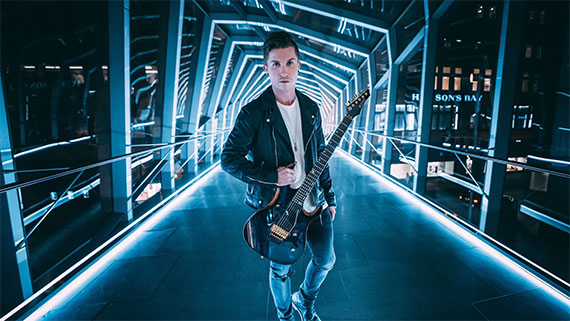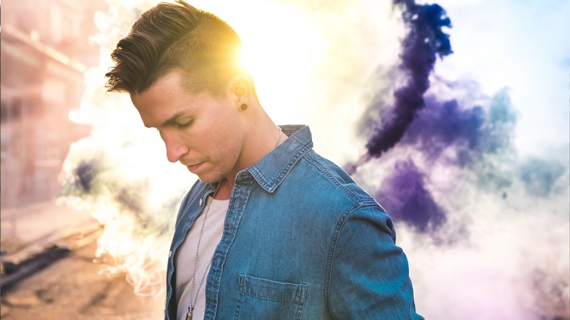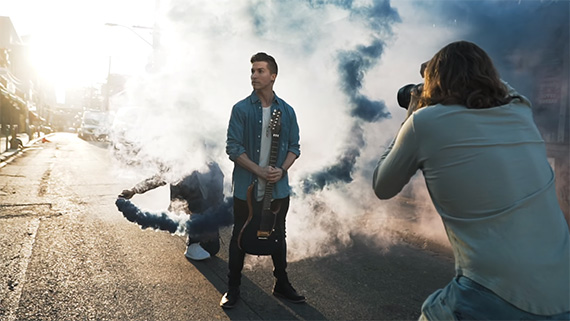A good portrait photographer can make anybody look amazing. While equipment and camera settings contribute to the end product, there are other important factors involved. So much depends on how the subject is posed, how the photographer communicates with the subject, and where the photograph is taken. Photographer Chris Hau discusses eight simple tips and tricks for outstanding portraits:
1. Facial Expression
Once you’ve decided on a mood for the photo, make sure that the subject doesn’t statically hold the pose, which will cause the photo to look awkward. Instead, ask them to reset their expression and pose and start over from time to time. Being in motion for a while and then holding the pose can help a lot.
2. Communication
If your subject isn’t used to being in front of a camera, the session can be difficult for both the photographer and the subject. Constantly provide feedback and direction. If you like how the photo comes out, say it out loud with enthusiasm and encouragement. This will raise their confidence and comfort level. And if you don’t like how they’re posing, let them know how they can make it better by guiding them.
3. Body Position
A lot of time, people don’t know what kind of body positions look good on camera. To make matters much more comfortable, collect some good portraits with great poses from Instagram or Pinterest and share them with your subject. This will give your subjects an idea of what they can do.
To correct awkward posture, Hau suggests posing your subject in a natural position by asking them to bring their shoulders back and down and then asking them to take a deep breath.
4. Sharp Focus
Having sharp photos is essential for any type of photography. If you’re not using a tripod, one way to ensure that your photos are sharp is by using a shutter speed that’s at least the reciprocal of your focal length. For instance, if you’re shooting at 50mm, make sure that your shutter speed is set to 1/50 second or faster.
5. Lighting
Soft, diffused light that wraps around your subject’s face tends to be flattering. If you’re shooting outdoors, clouds are your best friend. Clouds diffuse the light and make it soft. If it’s a clear, sunny day, place a diffuser above the subject to achieve a soft light effect.
Another option is to have your subject stand in shade.
And if you can, use the reflections off of a building as your fill light to help even out the light across the subject’s face.
To get the best natural lighting, shoot at golden hour when the light is really warm and soft.
6. Location Scouting
Do your homework beforehand and build a list of locations for your photo shoots. You can then share some of your favorite locations with your client. Also, make sure that the location is appropriate for the mood you want to set. To compile a list of locations, you can again use social media, like Instagram.
7. Lens Choice
Consider your composition and the look that you’re aiming for when deciding on your lens. If you want to include the environment, using something like a 35mm lens makes sense. But if your aim is to take headshots, using a portrait lens (e.g. 85mm) makes a lot more sense.
8. Breaking Rules
Having these tips and guidelines to help you with your portrait photography is okay. But you don’t have to abide by each and every one of them. Trust your eyes. They know what looks good. If you have a style of your own and you’re happy with it, follow it and break all other rules. Consider this the eighth and most important tip. Who knows, you might be the next trendsetter in portrait photography!
Like This Article?
Don't Miss The Next One!
Join over 100,000 photographers of all experience levels who receive our free photography tips and articles to stay current:









Leave a Reply